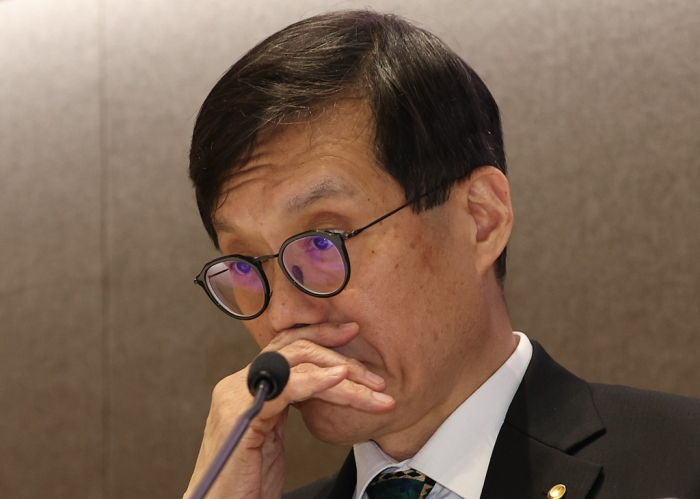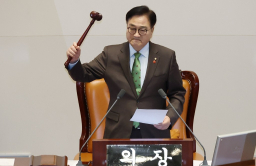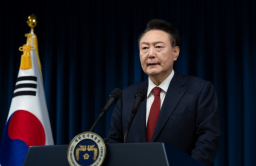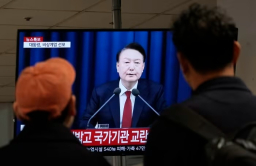-
KOSPI 2577.27 -2.21 -0.09%
-
KOSDAQ 722.52 -7.07 -0.97%
-
KOSPI200 341.49 +0.02 +0.01%
-
USD/KRW 1396 -2.00 0.14%
S.Korea’s c.bank chief sees limited impact of political turmoil on economy
Central bank
S.Korea’s c.bank chief sees limited impact of political turmoil on economy
BOK maintains inflation target of 2%, expecting inflation to accelerate to around that level next year
By
Dec 18, 2024 (Gmt+09:00)
2
Min read
News+

South Korea’s central bank chief said on Wednesday the impact of political turmoil caused by martial law on Asia’s fourth-largest economy will be limited after its Parliament voted to impeach President Yoon Suk Yeol.
“If confidence is maintained that economic policy is implemented separately from the political process and the economic system functions normally, the impact of political uncertainty will be limited even though it persists for a certain period,” Bank of Korea (BOK) Governor Rhee Chang-yong told reporters at a meeting to explain the central bank’s inflation policy.
“The local financial and foreign exchange markets, which had been significantly volatile, have recently stabilized.”
South Korean shares and the won currency paused their slide after lawmakers last weekend voted to impeach Yoon over his stunning martial law decree on Dec. 3.
The benchmark Kospi hit a 13-month low after he survived the first impeachment vote on Dec. 7, while the won depreciated 2.3% against the dollar after the martial law and before the impeachment.
The BOK on Dec. 4 decided to provide "unlimited" liquidity to the country’s financial markets by purchasing repurchase agreements, or repos.
PLEDGES TO STABILIZE ECONOMY
Rhee reiterated a pledge to stabilize the economy in cooperation with the government.
“It is most important now for people to return to their daily lives and engage in normal economic activities,” Rhee said. “The BOK will do its utmost to stabilize the economy while working closely with the government.”
The BOK decided to maintain its inflation target of 2% until the next policy review.
Consumer inflation is expected to stabilize at around the 2% target next year although it recently fell below that level, Rhee said.
“We will be watching price developments closely going forward as there are many uncertainties in inflation forecasts in addition to the impeachment process,” he said.
The Constitutional Court has up to 180 days to decide whether to reinstate Yoon or formally remove him from office. If it rules to proceed with the impeachment, an election for the next president must be called within 60 days of the ruling.
Write to Jin-gyu Kang at josep@hankyung.com
Jongwoo Cheon edited this article.
More To Read
-
 Business & PoliticsKorea’s president impeached over martial law; political turmoil to ease
Business & PoliticsKorea’s president impeached over martial law; political turmoil to easeDec 14, 2024 (Gmt+09:00)
-
 Business & PoliticsSouth Korea’s president apologizes for martial law
Business & PoliticsSouth Korea’s president apologizes for martial lawDec 07, 2024 (Gmt+09:00)
-
 Business & PoliticsSouth Korea president to lift martial law after Parliament rejects move
Business & PoliticsSouth Korea president to lift martial law after Parliament rejects moveDec 04, 2024 (Gmt+09:00)
-
Dec 03, 2024 (Gmt+09:00)



